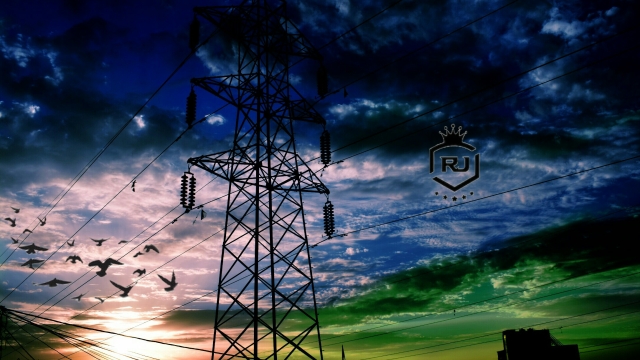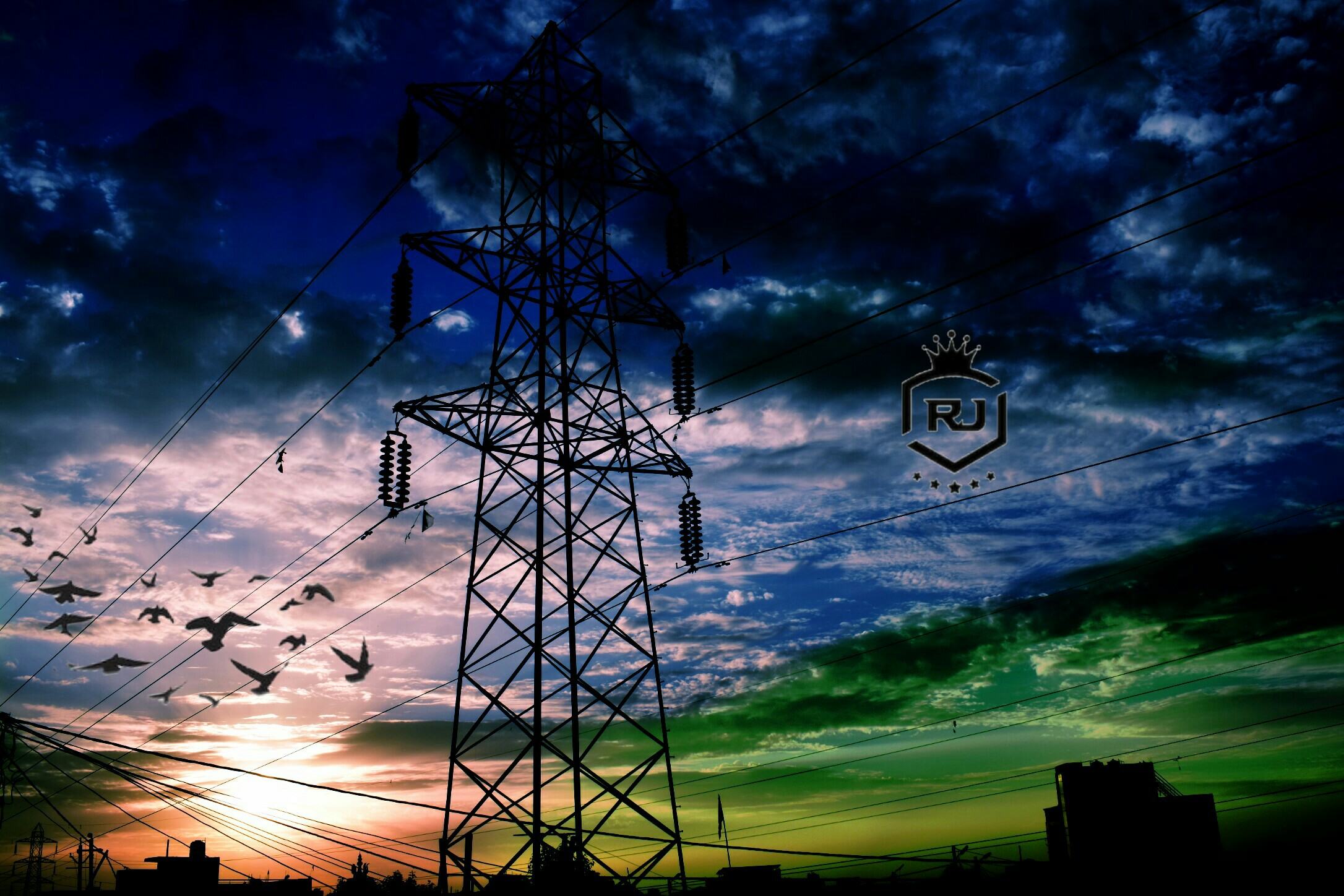
Current Trends: Illuminating the Future of Electricians

In recent years, the role of electricians has evolved dramatically, reflecting the advancements in technology and the growing emphasis on sustainability. As our reliance on electric power continues to soar, the demand for skilled electricians who can navigate this evolving landscape becomes increasingly critical. From residential wiring to complex commercial installations, electricians are at the forefront of keeping our modern world connected and efficient.
Today, electricians are not just skilled tradespeople; they are essential players in the shift toward greener energy solutions and smart technologies. Innovations such as solar power installations, energy-efficient systems, and home automation are transforming their work, demanding new skills and knowledge. With these trends, the future of electricians is not only brighter but also more diverse, opening doors to exciting opportunities in various sectors. As we explore these current trends, we gain insights into how the industry is preparing for the challenges and advancements that lie ahead.
Emerging Technologies in Electrical Work
The field of electrical work is rapidly evolving with the advent of new technologies that are reshaping how electricians perform their tasks. Smart home technology has become increasingly popular, enabling homeowners to automate and remotely control lighting, heating, and security systems. Electricians are now required to have knowledge of how to install and maintain these sophisticated systems, which often integrate with other smart devices and platforms. This shift towards interconnectedness is driving the need for electricians to be more tech-savvy and adaptable to new tools and software.
Renewable energy sources, particularly solar and wind power, are also gaining traction, leading to significant changes in the industry. As more homes and businesses seek sustainable energy solutions, electricians need to acquire skills in installing and maintaining solar panels and inverters, as well as understanding energy storage systems like batteries. This transition not only requires specialized training but also a shift in mindset for electricians, who must now consider energy efficiency and environmental impact in their work more than ever.
Additionally, advancements in electrical tools and equipment are enhancing the efficiency and safety of electrical work. Innovative tools, such as digital multimeters, voltage testers, and insulation testers, are providing electricians with more accurate readings and diagnostics. Furthermore, augmented reality and virtual reality technologies are being explored for training and troubleshooting, providing a platform for electricians to simulate complex scenarios without the risk of real-world consequences. As these technologies become more integrated into the profession, electricians will need to continually update their skills to keep pace with advancements.
The Demand for Skilled Electricians
Electrician Waybe Nj
The demand for skilled electricians continues to grow as the world transitions to a more electrified environment. With advancements in technology and the increasing reliance on electrical systems in homes and businesses, the need for qualified electricians has never been greater. Electricians are essential to ensure safe and efficient electrical installations and maintenance, which is crucial for modern living.
Moreover, the push for renewable energy sources, such as solar and wind power, is driving demand for electricians who specialize in these areas. As more homeowners and businesses invest in renewable energy solutions, the need for professionals who can install and maintain these systems increases. This shift not only presents opportunities for current electricians but also opens the door for new professionals entering the field.
As cities expand and infrastructure projects grow in scale, the requirement for skilled electricians remains critical. From new construction projects to retrofitting existing buildings with energy-efficient systems, electricians play a vital role in shaping the built environment. Their expertise is key to meeting the ever-changing demands of a society that is more dependent on electrical power than ever before.
Sustainability and Green Practices
As the world increasingly shifts its focus toward sustainability, electricians are finding themselves at the forefront of eco-friendly initiatives. The demand for renewable energy sources is rising, leading electricians to become more involved in the installation and maintenance of solar panels and wind turbines. This transition not only addresses environmental concerns but also creates new opportunities for electricians to expand their skill sets and services.
In addition to renewable energy, electricians are also adopting energy-efficient practices in their work. The use of LED lighting, smart home technology, and energy-efficient appliances has gained momentum. Electricians are playing a crucial role in educating consumers about these options, helping them reduce energy consumption and lower their utility bills. This emphasis on efficiency not only benefits homeowners but also contributes to a larger goal of reducing carbon footprints.
Furthermore, sustainable practices are extending to the materials and methods used in electrical installations. Many electricians are now opting for recycled materials and environmentally friendly products to minimize waste. The integration of sustainable practices into their work is becoming a key differentiator for electricians, as consumers increasingly seek providers who align with their values regarding environmental responsibility. As this trend continues, electricians who embrace sustainability will be well-positioned for future success.
Electric Vehicles and Infrastructure
The rise of electric vehicles is transforming the landscape for electricians across the globe. As governments and manufacturers push for greener alternatives to traditional gasoline-powered cars, the demand for electric vehicle charging stations is surging. Electricians need to adapt to this shift by acquiring skills to install, maintain, and repair these charging systems. This new focus not only broadens the scope of work for electricians but also presents opportunities for specialization in a rapidly growing sector.
In addition to residential charging stations, electricians are increasingly involved in the development of public charging infrastructure. Cities are investing in charging networks to support the growing number of electric vehicles on the road. Electricians play a crucial role in this endeavor, collaborating with local governments and businesses to ensure that charging stations are installed safely and efficiently. With a robust infrastructure in place, the transition to electric mobility will become more seamless, creating a sustainable environment for future generations.
Furthermore, the integration of renewable energy sources with electric vehicle infrastructure presents another layer of opportunity for electricians. The ability to connect solar panels and wind turbines to charging stations allows for a more sustainable energy usage model. Electricians are becoming vital in designing and implementing these systems, ensuring that electric vehicles can be charged using clean energy. This convergence of technology and environmental considerations positions electricians at the forefront of the renewable energy movement, enhancing their role in shaping a greener future.
Advancements in Safety Standards
The field of electrical work has seen significant advancements in safety standards over the past few years. Regulatory organizations and industry groups have continuously updated guidelines to reflect the latest research and technological innovations. These changes aim to minimize hazards associated with electrical installations and maintenance, making the work environment safer for electricians. Improved safety standards not only protect workers but also enhance the overall quality of electrical systems.
One key area of advancement has been the integration of enhanced personal protective equipment (PPE). Electricians are now equipped with better insulation, grounding tools, and protective gear designed to mitigate the risks of electrical shocks and arc flashes. Training programs have also evolved, incorporating hands-on simulations and virtual reality scenarios that prepare electricians to respond effectively to emergencies. This comprehensive approach to safety education ensures that workers are well-prepared to handle the challenges they face on the job.
As technology continues to evolve, the implementation of smart systems in electrical work is becoming more common. These systems can monitor electrical loads, detect faults, and communicate in real time to alert electricians of potential hazards. The adoption of these intelligent solutions not only improves safety outcomes but also streamlines the workflow for electricians. By fostering a culture of safety through ongoing education and the use of smart technologies, the electrical industry is paving the way for a safer future.



